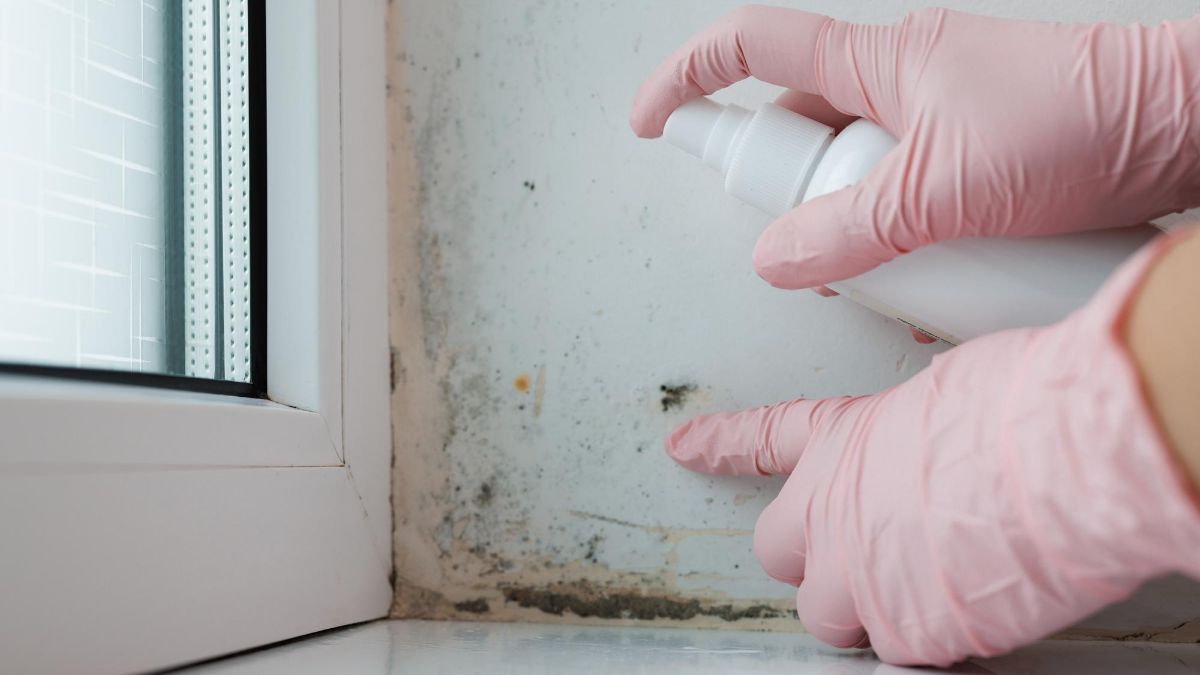
When it comes to keeping your family safe, mold testing is a critical step. Not only can mold jeopardize the air quality of a space but can even pose health risks if left undetected and untreated. The importance of these tests cannot be overstated for meaningfully understanding the presence of dangerous molds in any area where you or your family spend time on a regular basis. In this blog post, we’ll explain what mold testing is, why it matters, and how to go about getting one.
Overview of Mold and Its Potential Hazards
Mold, a type of fungus that grows in damp areas, is a common problem experienced by many homeowners. Although some types of mold are harmless, certain strains can pose serious health hazards, and it’s important to understand the dangers associated with mold exposure.
Symptoms of mold exposure can include breathing difficulties, coughing, and skin irritation, and left unchecked, it can cause long-term health problems. While it’s impossible to completely eliminate all traces of mold, there are steps you can take to minimize its growth, such as keeping your home well-ventilated and addressing any water leaks or moisture issues promptly.
It’s important to take mold seriously and seek professional help if you suspect its presence in your home. By researching hygienist mold testing services, you can gain an accurate assessment of the type and extent of mold present in your home. Afterward, you can make an informed decision about how to best address any mold issues.
Signs That You Should Test for Mold
There are several signs that you should look out for that could indicate the presence of mold. First of all, if you notice a musty smell in your home, this could be a sign of mold growth. You may also notice visible signs of mold, such as black or green spots on walls, ceilings, or floors. If you or anyone in your family experiences frequent coughing, sneezing, or other allergy-like symptoms while inside your home, this may also be a sign of mold.
Finally, if you have recently experienced water damage or flooding in your home, you should test for mold as soon as possible, as the damp conditions will encourage mold growth. If you notice any of these signs, make sure to get a professional mold inspection to ensure that your home is safe and healthy.
The Benefits of Professional Mold Testing
Mold growth in homes and workplaces is a significant health hazard and can lead to respiratory illnesses, allergies, and other health problems. Professional mold testing is vital in identifying and assessing the extent of mold growth in a space. By using state-of-the-art equipment, certified mold inspectors can detect hidden mold growth and determine the type and level of contamination.
This leads to effective mold remediation and ensures that your indoor environment is safe and healthy for you and your loved ones. Additionally, professional mold testing can also help identify the underlying cause of mold growth, allowing you to take corrective measures to prevent its recurrence in the future. Don’t underestimate the importance of professional mold testing – it’s an investment in your health and well-being.
Steps to Take When You Find Out You Have Mold
Discovering mold in your home can be an alarming experience, but it’s important to take action quickly to ensure the problem doesn’t escalate. The first step is to identify the type of mold and how severe the situation is. This can be done through a professional mold inspection, which will also determine the best remediation approach.
Next, it’s crucial to address any underlying water issues that may have caused the mold growth in the first place. Once the source of moisture is addressed, the mold can be removed through a variety of methods, including dry-ice blasting, HEPA vacuuming, or chemical treatments.
Finally, preventative measures should be taken to prevent future mold growth, such as proper ventilation and dehumidification. By taking these steps, you can effectively manage a mold problem and ensure your home remains a healthy living environment.
Prevention Tips To Stop Future Mold Growth
Mold growth can not only be unsightly but also detrimental to our health. Taking preventative measures can help stop it from spreading in the future. One effective tip is to keep an eye on the humidity levels in your home. Mold loves moisture, so try to keep the humidity below 50%.
Another tip is to fix any leaks or water damage as soon as possible, as this is a breeding ground for mold. Regularly cleaning and disinfecting your home can also help prevent mold growth. Prevention is key when it comes to mold, so don’t wait until it’s too late to start implementing these tips.
How Often Should I Test for Mold In My Home or Business Space
Mold is a sneaky intruder that can take hold of your home or business space without you knowing it. It’s important to be vigilant about checking for mold to protect your health and property. But how often should you test for mold? The answer depends on a few factors, such as your location, climate, and any history of mold issues in your space.
Generally speaking, it’s a good idea to test for mold at least once a year, especially in areas with high humidity or moisture. If you notice any signs of mold growth, such as a musty or earthy odor, damp spots on walls or ceilings, or allergic reactions in yourself or others, don’t hesitate to schedule a professional mold inspection right away.
Taking proactive steps to prevent and address mold growth can go a long way in keeping your home or business healthy and mold-free.
In conclusion, mold is a silent intruder that can pose serious health risks, especially if left unchecked. It’s essential to be aware and vigilant, watching out for signs of its presence in your home or workspace, such as musty smells, visible growth, or allergy symptoms. Regular professional testing and taking prompt action at the first signs of mold is crucial for maintaining a healthy environment. Remember to address any moisture issues swiftly and invest in preventative measures to discourage mold growth. By taking these steps, you can protect your space and health from the dangers of mold.




